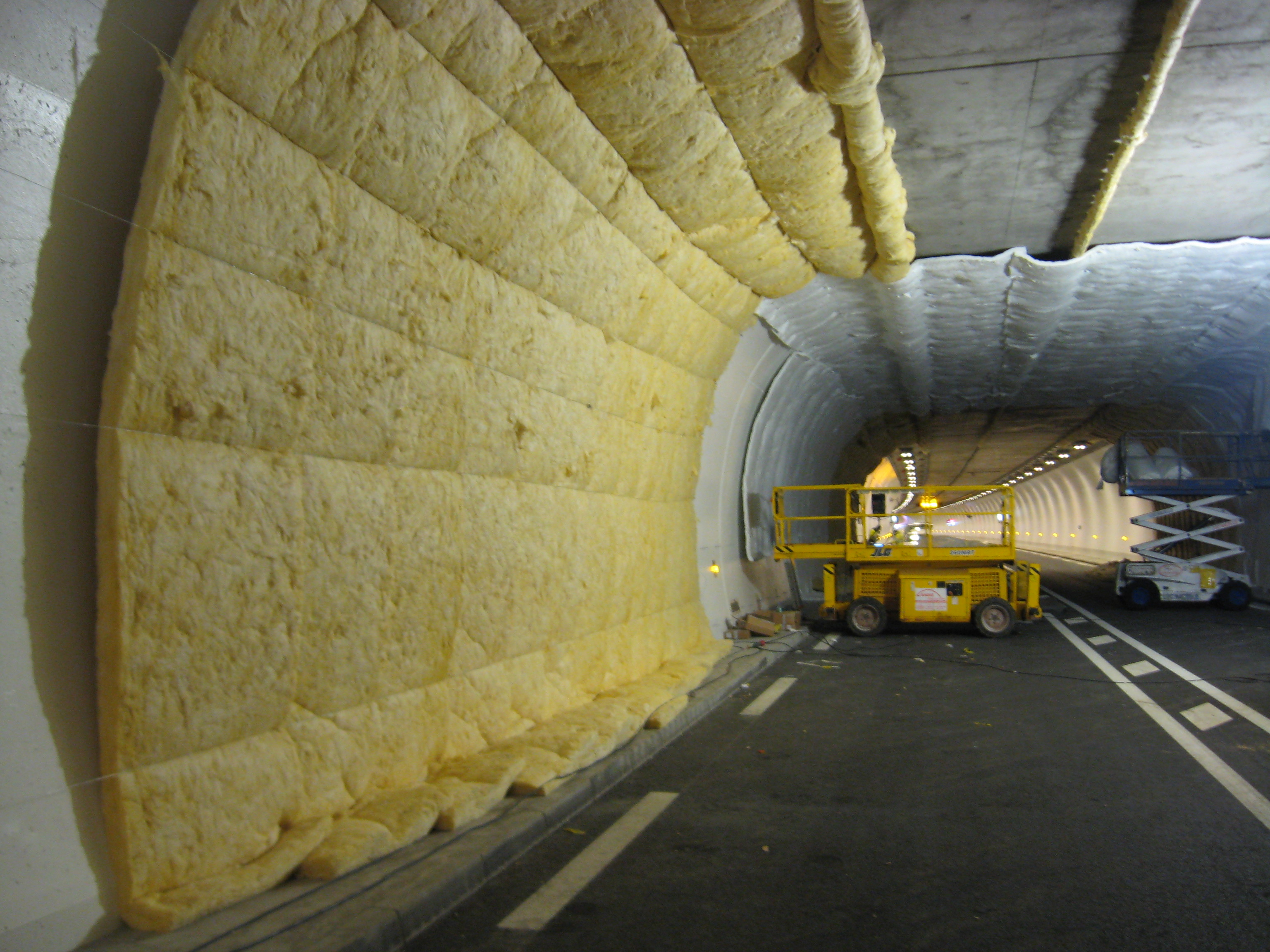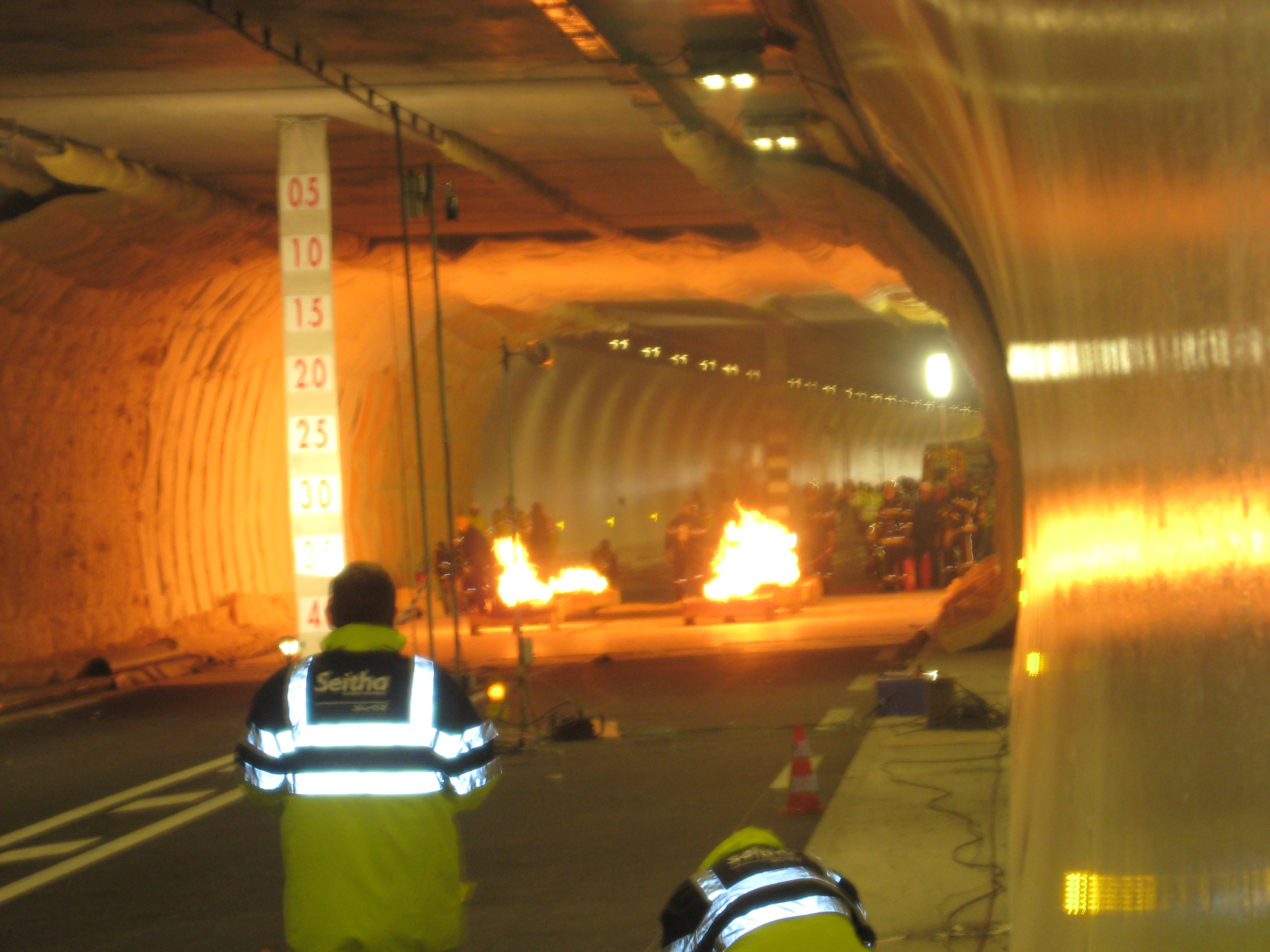
Road Tunnels Manual

Road Tunnels Manual
The materials used in tunnel construction have to possess adequate resistance to fire to ensure integrity during evacuation and fire fighting.
Section VII.3 "Fire reaction of materials" of technical report 05.05.B "Fire and Smoke Control in Tunnels" discusses the fire properties of tunnel materials, indicating that the specifications set for materials should include requirements concerning their properties in the event of a fire. Desirable properties include:
 Gases generated by a fire cannot be prevented, but the risks can be mitigated by the choice of the material and also the design of safety features, such as escape routes, to reduce exposure. Attention is also drawn to the properties of wall-covering materials, including tiles and paints, waterproofing or lighting equipment (Fig. 1). The specifications set for such materials should also include requirements concerning their properties in the event of a fire.
Gases generated by a fire cannot be prevented, but the risks can be mitigated by the choice of the material and also the design of safety features, such as escape routes, to reduce exposure. Attention is also drawn to the properties of wall-covering materials, including tiles and paints, waterproofing or lighting equipment (Fig. 1). The specifications set for such materials should also include requirements concerning their properties in the event of a fire.
The possibility that materials might produce chemically corrosive or toxic substances during combustion and that these might penetrate the surface of the concrete and cause subsequent corrosion should also be considered. This also applies to any coatings that might be used. In case of polypropylene fibres being specified to reduce the risk of spalling, the issue of concrete durability after any significant fire event should be considered. This is because there will be increased porosity within the concrete where fibres have melted, leading to increased vulnerability to carbonation or chloride attack.
 Road surfaces may be constructed from cement concrete or asphalt. The Route/Roads article "Effects of Roadway Pavement on Fires in Road Tunnels" discusses the properties of these materials from a fire safety point of view. Of these, cement concrete is the only one which is not combustible and does not raise any question as to its use in tunnels. However, studies and experiences from real fires have shown that in phases when safety of people is concerned, asphalt does not add significantly to the fire size (both heat release rate and total fire load) in the case of a road tunnel fire. Open asphalt is not advisable in tunnels as a fuel spillage will be stored below the road surface.
Road surfaces may be constructed from cement concrete or asphalt. The Route/Roads article "Effects of Roadway Pavement on Fires in Road Tunnels" discusses the properties of these materials from a fire safety point of view. Of these, cement concrete is the only one which is not combustible and does not raise any question as to its use in tunnels. However, studies and experiences from real fires have shown that in phases when safety of people is concerned, asphalt does not add significantly to the fire size (both heat release rate and total fire load) in the case of a road tunnel fire. Open asphalt is not advisable in tunnels as a fuel spillage will be stored below the road surface.